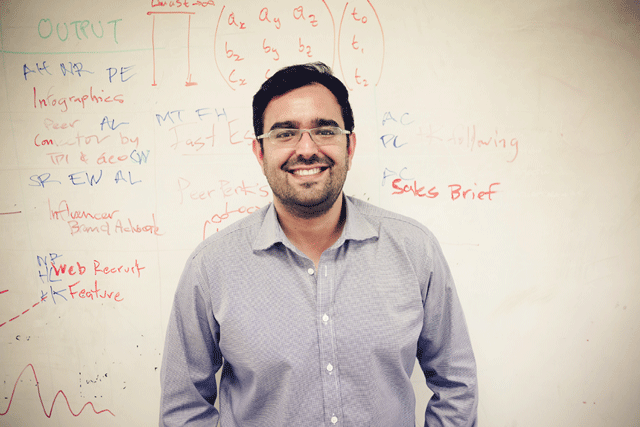Where once marketers could neatly segment their audiences by demographics, wealth and age, the growing importance of social influence is turning this traditional targeting inside out.
Brands such as Burberry and Nike have shown that targeting key influencers on social media is just as important, if not more so, than traditional targeting techniques.
Here, Azeem Azhar, chief executive of social-media analytics company PeerIndex, explains how today's marketers can ditch meaningless metrics such as accumulated Facebook 'likes' to get the most out of social influence.
Will social influence replace traditional demographics as the primary method to drive word-of-mouth marketing?
Influence is not new; we see the power of influence everywhere. It is part of the cultural vernacular to recommend products. What is difficult is working out how to track and understand and make sense of it. Social influence existed long before social media; social media is just one lens into it. According to our research, between 5% and 6% of marketing budgets will move toward social influence over the next five years.
Social influence should be part of every marketer's segmentation strategy. This is because people who are influential in a category are likely to respond differently to changes in strategy such as pricing. Second, an influencer might give back to the brand in different ways, from raising engagement and awareness to driving sales.
How can brands ensure that social word of mouth is authentic and avoid any potential user backlash?
Brands have been giving samples, products and experiences to key influencers such as journalists for an age; they aren't breaching any ethics. What we are doing is taking this model and giving it scale by allowing brands to engage with indexed influencers.
To maintain authenticity, the brand never makes an offer or samples a product contingent on a consumer liking or sharing it. You rely on the fact that people who have built up social capital will use their own judgement. If the targeting is good, they will engage with the brand.
How do you see marketers' use of social influence evolving?
The only way (for brands) to make sense of social is to use filters to break down their audience. If your brand has 1m followers on Twitter, the question is: do you do a Marmite and smear (your activity) really thin, or do you identify the group that matters the most?
Social influence will become much more closely tied to real-time marketing. For example, if you are a car brand, you can segment your followers (by who is) interested in sport, health and technology, so you know exactly which model to target them with.
Has the business of social-media marketing been devalued by the industry's reliance on 'gameable' numbers, such as follower counts and likes?
There is a very complex ecosystem between customers and influencers that has a huge impact on brand perception. If you don't really understand the difference between a follower and an influencer, there is a risk that you won't see beyond easily 'gameable' and meaningless numbers.
There will be a number of brands that will be genuinely disappointed when they see what percentage of their followers are genuinely influential or interested in their product categories. Our goal is to get the right people engaged.
Can marketers opt out of Twitter on a personal level?
It is unsustainable not to be on Twitter - great marketers understand that they need to embrace these tools to understand their customers. I'm very surprised when I hear that people aren't on Twitter - it's invaluable.
It is like the people who thought that man would never fly - they didn't believe in the aeroplane. At every point in history when there is a fundamental change in the world, there is that group of people who simply don't get it.
In 1999, the CEO of a telephone company told me he would never let his customers pay online, while a publisher was adamant that his magazine would never go digital. Social media is like parenthood: you can read all the books you like, but until you have a child, or get involved, you simply won't really get it.
How can marketers boost their social capital?
As a marketer, you should think carefully about your social influence. As soon as people meet you, they Google you, so you need to ensure that your LinkedIn and Twitter profiles contain the right level of information.
When we look to hire people, we find that those just out of university are increasingly active on social media, and many have their own domain name. When your value to employers is in your network, the question is: why wouldn't you make the effort?
CV
2005-2007: Head of innovation, Reuters
2005-2009: Board director, Inuk Networks
2005-present: Investor in companies, including Seedcamp and New Energy Finance
2008: Acting director of product, True Knowledge
2009-present: Founder and chief executive, PeerIndex.



